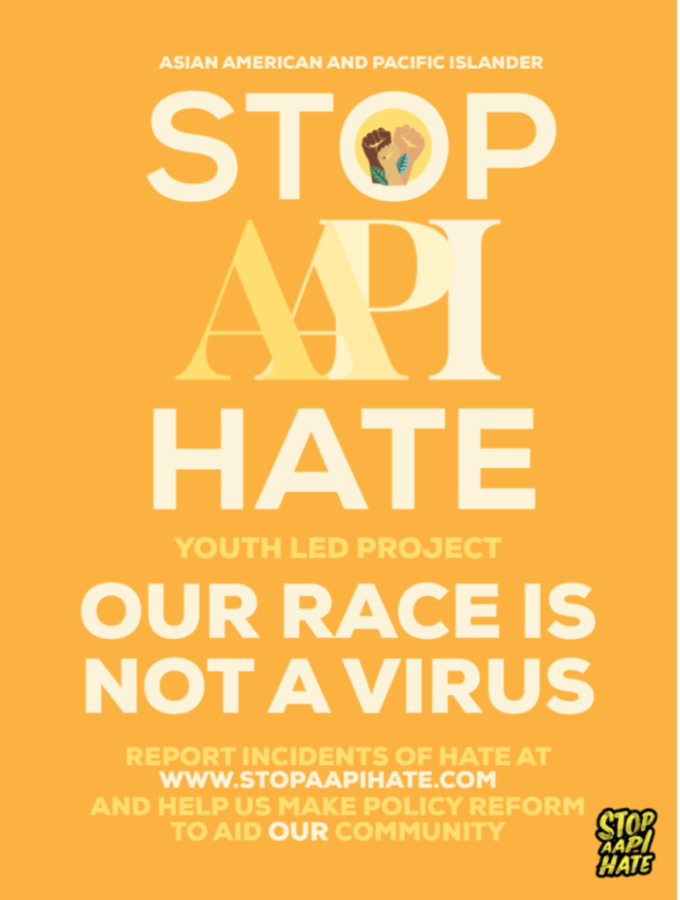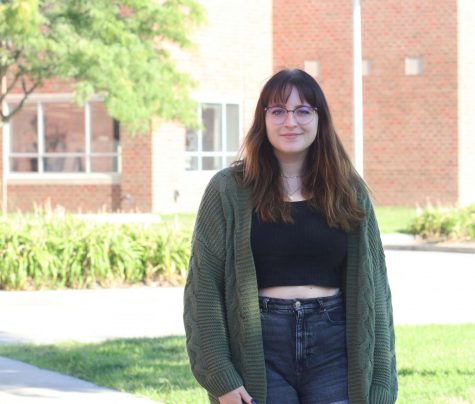Stop the hate
The importance of recognizing and addressing the injustices Asian Americans and Pacific Islanders face
Photo Courtesy of Asian Pacific Policy and Planning Council
As a way to spread awareness and support of their cause, groups in support of AAPI spread infographics, statistics, and resources. People share these on social media and educate others.
April 16, 2021
With every aspect of American life at a standstill during the pandemic, activism against racism has been as prominent as ever. Movements like Black Lives Matter have earned national attention and more recently, activism for Asian Americans has taken a spot in the headlines.
As articles about devastating shootings and other hate crimes towards Asian Americans and Pacific Islanders (AAPI) appear more often. Unfortunately, it’s not a surprise that the Center for the Study of Hate and Extremism (CSUSB) disclosed that while hate crimes have overall decreased during 2020, hate crimes against AAPI have surged to 145%. The severity of this proves the movement is needed now more than ever.
While the rhetoric of the “China virus” spread in America, so did COVID-19. This type of rhetoric led Asian Americans to take the blame for a virus that originated overseas. The credit for assigning the racist and xenophobic term to the virus goes to former President Donald Trump. This led to a surge in anti-Asian American hate on social media platforms along with physical and verbal assaults, according to CNN. When faced with a pandemic and a bunch of fearful citizens, placing blame for an illness incites even more fear on both sides. AAPI have to worry about being associated and blamed for the virus when they are not to blame. For example, USAToday reported that 21% of Asian Americans have reported harassment online due to their race. The opposing side consuming this rhetoric has someone to blame for the disease which led to acts of discrimination and prejudice towards AAPI.
Though COVID-19 has spurred hate and racism towards Asian Americans, this isn’t a new problem. Recently, outrage over a shooting in Atlanta, Georgia, which resulted in eight citizens dead, including six Asian American women sparked up conversations about crimes targeting Asian Americans. Similar to how the Black Lives Matter movement spread, informational posts on social media platforms garnered support from public figures and bigger companies which led to the education of mass amounts of people. Social media plays a crucial role in educating people and plays a part in hitting the root of the problem of anti-Asian prejudices and stereotypes. From there, issues within society regarding the treatment and stereotypes of Asians have been brought to light in the wake of the long-overdue movement.
Along with recognizing the issues AAPI communities face, education about Asian Americans and Pacific Islanders need to be emphasized even more to reduce the injustices that these Americans face. In my educational experience, my knowledge of the history of AAPI is severely limited. AAPI communities were briefly mentioned in history in instances such as the ban on Chinese immigration and the Japanese internment camps, but never more than a unit or two. History classes tend to emphasize the accomplishments and the injustice that marginalized groups like Black Americans or women, but AAPI deserves a place among that part of history, too.
Educating students about the integral parts of America that AAPI have participated in and the injustices that they have faced reinforce that they have a solid place in America. Students can recognize their contributions and understand how these groups have been discriminated against in the past and currently. There is still room for our generation and future generations to improve the way we treat other Americans.
Though including education about these groups will reduce stigma and hopefully reduce the injustices they face, it is not a perfect, cheery solution. Even with the current education surrounding racism, racism still exists. As we educate Americans about race and the melting pot that makes America, improving our methods and radical change will be necessary to address and fix the larger issue of racism that American is built on. While education is not a perfect approach, it is a baby step towards an anti-racist America.







